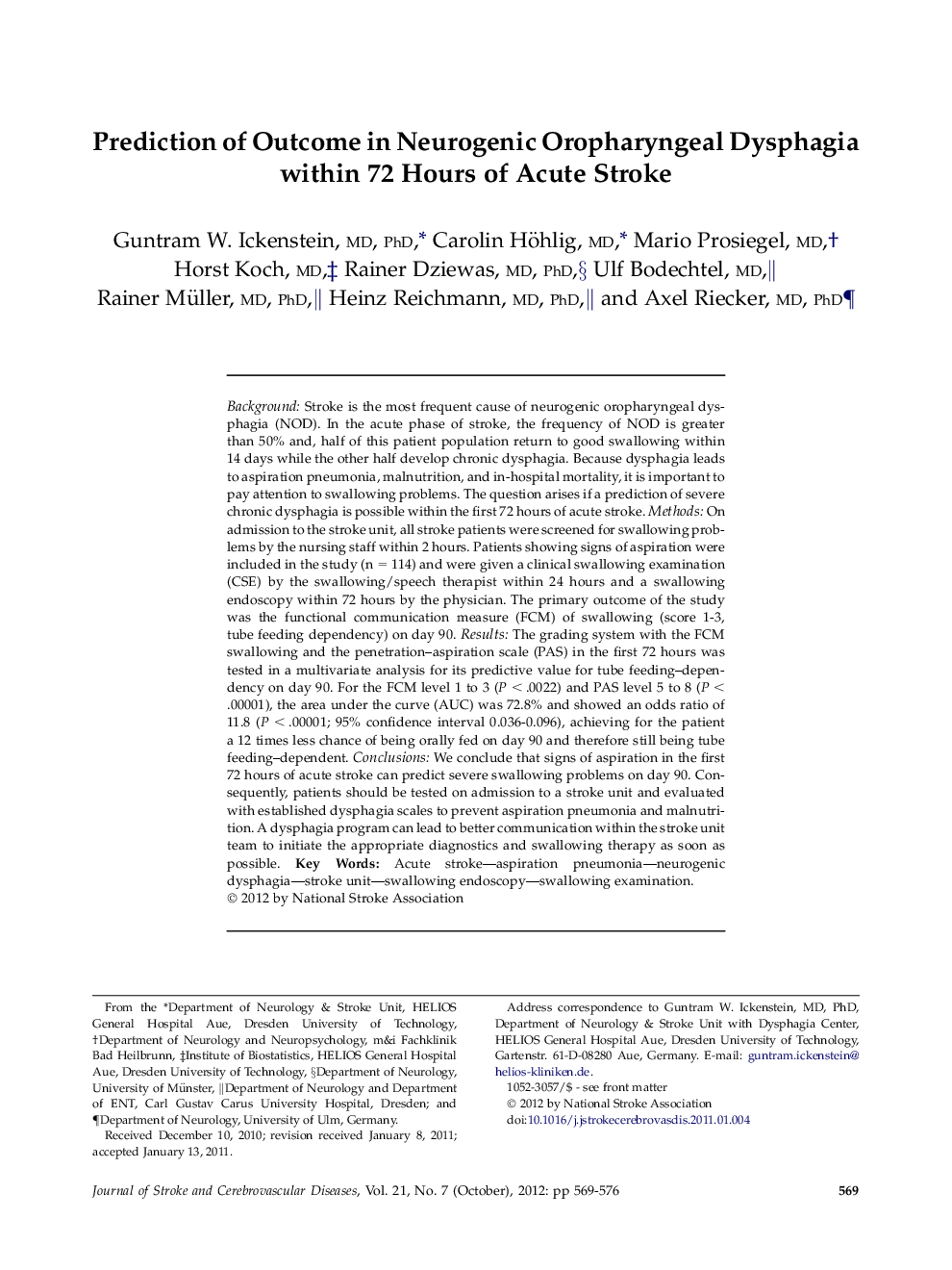| کد مقاله | کد نشریه | سال انتشار | مقاله انگلیسی | نسخه تمام متن |
|---|---|---|---|---|
| 2702026 | 1144505 | 2012 | 8 صفحه PDF | دانلود رایگان |

BackgroundStroke is the most frequent cause of neurogenic oropharyngeal dysphagia (NOD). In the acute phase of stroke, the frequency of NOD is greater than 50% and, half of this patient population return to good swallowing within 14 days while the other half develop chronic dysphagia. Because dysphagia leads to aspiration pneumonia, malnutrition, and in-hospital mortality, it is important to pay attention to swallowing problems. The question arises if a prediction of severe chronic dysphagia is possible within the first 72 hours of acute stroke.MethodsOn admission to the stroke unit, all stroke patients were screened for swallowing problems by the nursing staff within 2 hours. Patients showing signs of aspiration were included in the study (n = 114) and were given a clinical swallowing examination (CSE) by the swallowing/speech therapist within 24 hours and a swallowing endoscopy within 72 hours by the physician. The primary outcome of the study was the functional communication measure (FCM) of swallowing (score 1-3, tube feeding dependency) on day 90.ResultsThe grading system with the FCM swallowing and the penetration–aspiration scale (PAS) in the first 72 hours was tested in a multivariate analysis for its predictive value for tube feeding–dependency on day 90. For the FCM level 1 to 3 (P < .0022) and PAS level 5 to 8 (P < .00001), the area under the curve (AUC) was 72.8% and showed an odds ratio of 11.8 (P < .00001; 95% confidence interval 0.036-0.096), achieving for the patient a 12 times less chance of being orally fed on day 90 and therefore still being tube feeding–dependent.ConclusionsWe conclude that signs of aspiration in the first 72 hours of acute stroke can predict severe swallowing problems on day 90. Consequently, patients should be tested on admission to a stroke unit and evaluated with established dysphagia scales to prevent aspiration pneumonia and malnutrition. A dysphagia program can lead to better communication within the stroke unit team to initiate the appropriate diagnostics and swallowing therapy as soon as possible.
Journal: Journal of Stroke and Cerebrovascular Diseases - Volume 21, Issue 7, October 2012, Pages 569–576